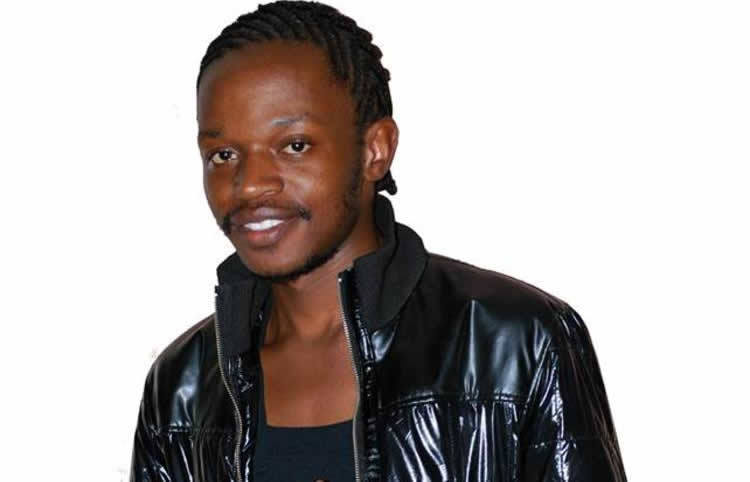
The Sunday Mail

The question on the lips of everyone in the music industry is: will Zim dancehall last?
The genre’s flame is currently burning bright but so did that of urban grooves some years ago before turning pale.
Facts on the ground seem to suggest that we are still far from seeing the back of the fast-rising movement (Zim dancehall). Never in the history of music have we seen two shows of a similar genre being held within the same vicinity but all still managing to attract healthy crowds.
For many the outcome of the Harare Show Shut-down and the Harare Show Cup Clash gigs held on August 30 at venues so close to each other that one would have thought they were a single show was a surprise.
One was expected to flop yet none did.
Both promoters smiled all the way to the bank as thousands turned up for their shows. Actually, had one gig been organised for the day, the results would have been disastrous as the response was overwhelming for both venues.
The ghetto youths response was way above the two promoters’ expectations. Observers opine patrons could have easily filled a stadium on the day in question.
While the urban grooves genre helped bring a new dimension to our music charts, it is the way the artistes and partly the music fizzled out that has left many being doubting Thomases with regards to the future of Zim dancehall.
Of late, following fans debates, players of the two genres (urban grooves and Zim dancehall) have been on a collision course that has resulted in mudslinging and smear campaigns coming from both ends (never mind that some of them have done collaborations).
A battle for supremacy is going on as urban groovers believe that Zim dancehall is an off-shoot of their genre while the Zim dancehall artistes think otherwise.
A month or so ago, one of the urban grooves pioneers, Rockford ‘‘Roki’’ Josphats, blasted some members of the Zim dancehall movement for claiming to be the founders of the genre.
He said: Zim dancehall was an offshoot of urban grooves coming from the likes of Sniper, ‘‘Yombree’’ and ‘‘Wreckless’’ that were part of the urban grooves movement.
Inasmuch as Roki had a fact, he did not acknowledge that the dancehall movement had for close to a decade been in existence championed by the likes of Major E, Booker T and Potato.
“Godfather” Templeman shares these sentiments.
And the dancehall genre that recently turned commercial has managed to amass grassroots support from youths as young as 10 years old, creating an identity that has somewhat guaranteed the longevity of the genre.
The dancehall artistes have also successfully exposed social issues/injustices that the ghetto youths can identify with, in the process maintaining their roots. The development has guaranteed them (Zim dancehall artistes) support even in trying times under the homeboy/girl solidarity pacts.
Though they received support during their peak, the urban groovers somewhat failed to create an identity (or market niche) to easily guarantee them continued support.
Yes, they still have attention but their shows are now being poorly attended.
In short, the urban groovers support was more of a cocktail of characters that had no binding factors.
“It’s not like the urban groovers are finished. We are still in the game and doing our thing. If you notice, the quality of our music has in actual fact improved since the time we started. It’s just that this movement (Zim dancehall) is still new and hence the craze,” notes Nesto.
The same old faces like ExQ aka Musalala, soulful singer Trevor Dongo, Nesto and Nox are still active and are being supported by equally talented new comers like Tafadzwa Mandimika.
While they (urban groovers) are busy considering how best they can revive their fortunes, dancehall artistes have upped their game. They are fast penetrating the up-market to further consolidate their position as a genre of choice.
The Zim dancehall artistes are gradually achieving the mission as evidenced by the corporate endorsement deals that they are now attracting. Previously only the “classy” artistes from the urban groovers genre like Trevor Dongo, Roki and ExQ were getting such recognition.
Artistes like Soul Jah Love, Kinnah, Seh Calaz, Tocky Vibes, Winky D, Dadza D and Freeman are ambassadors for areas like Mbare, Mufakose, Kambuzuma, Chitungwiza and Dzivaresekwa. In these areas, they are “gods” and are literally worshipped.
The undoing of dancehall, however, is going to come from their sometimes rowdy behaviour. This conduct has made it difficult for some sections of the upper class to endorse this segment of the music industry.
The youngsters are easily frustrated and usually end up throwing missiles on stage or end up fighting among themselves during shows, a phenomenon that is alien to mature crowds.
Also concerns have been raised about the poor sound that sometimes characterise most of the dancehall recorded music. The sound quality is affected mostly by the poor quality equipment they use for recording.
“There are hundreds of dancehall artistes recording at the moment and the movement is in its budding stages. The genre will in the long run self correct and only the serious and talented artistes will last the distance. The future looks bright for the movement and nothing will stop it (Zim dancehall) in the foreseeable future,” argued Tafadzwa Kadzime aka Levelz.







